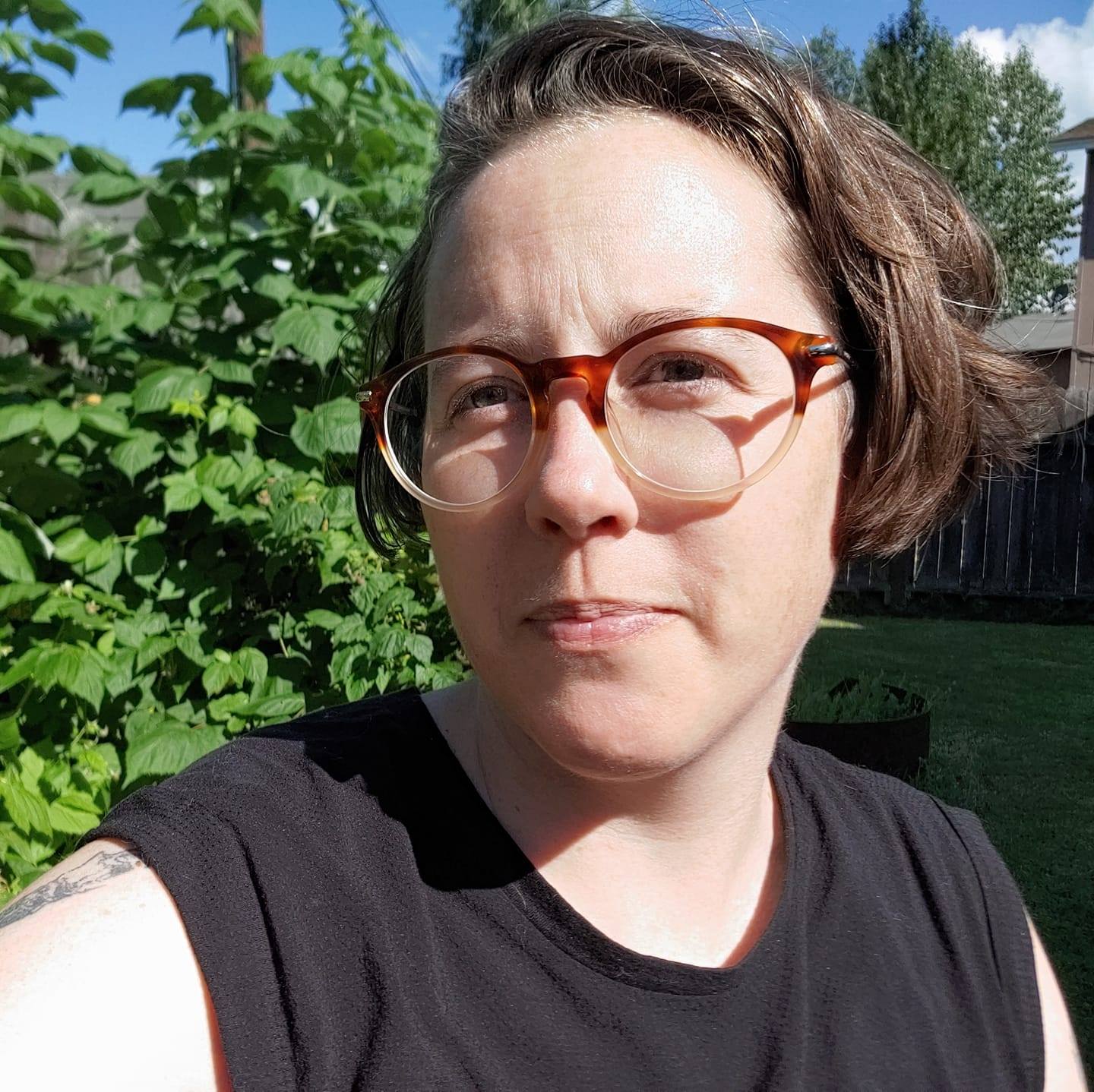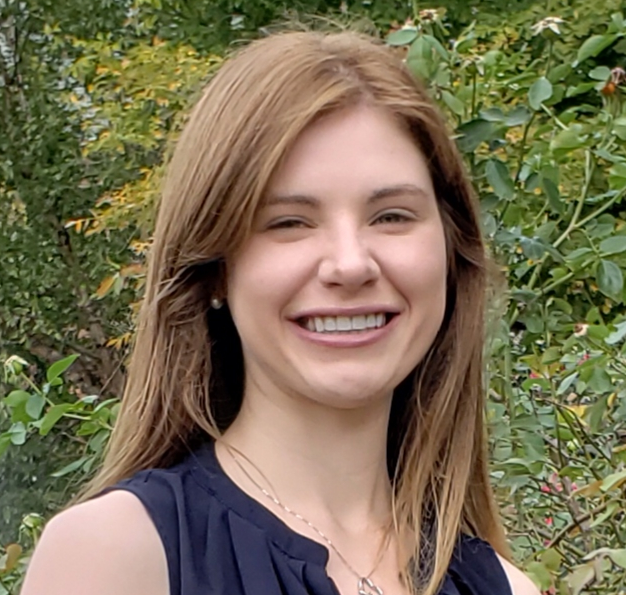
SPEAKERS
2022 Speakers to be announced.
Speakers for the 2022 conference will be announced soon!

2021 SPEAKERS BELOW

Aaron Surma

Amelia Simeonoff
Amelia Simeonoff, is a Program Associate for the Behavioral Health department at the Alaska Native Tribal Health Consortium, where she is a cultural bearer and administrative support.
She has a passion for beading and fur skin sewing. With the help of the Behavioral Health Director Dr. Cody Chipp, they received funds to make community beading kits for villages all over Alaska.
Amelia, begin on this path when she started working with Dr. Rita Pitka Blumenstein in 2016. Dr. Rita, shown Amelia many ways we can help our people heal with traditional plants as medicine and by keeping our hands busy with beading and fur skin sewing.
Amelia started beading when she was eight years old. As she got older she started beading more and more. Her mother Annie, kept her busy by getting all the materials she needed. Beading came natural to Amelia, it was like, she already knew what she was doing, it was like a six scenes. Amelia is so thankful to have this ability from my ancestors.

Becky Judd
Becky Judd came to Alaska with a one-way ticket and backpack in 1983. At the Alaska Council on Prevention of Alcohol and Drug Abuse, she initiated numerous statewide youth empowerment-based efforts (e.g., teen-trainer "prevention" programs; multiple student-led health conferences, and director of a statewide youth coalition with over 100 chapters.) Becky joined the Division of Public Health in 1992 as its first Adolescent Health Coordinator and moved to the Behavioral Health, Prevention/Early Intervention section with a focus on resiliency and youth development in 2003. She was the co-founder of the Spirit of Youth organization and the statewide Youth Developmental Assets /Community Engagement Initiative with the Association of Alaska School Boards.
Becky retired in 2013 to start her own business, Strength-Based Strategies. She provides training and technical assistance on best practice approaches in prevention and youth development, protective factors and evaluation. Recent clients include RurAL CAP (helping launch it's Resource Basket, a T/TA center for Alaska tribes to support their youth); ANTHC (developer of Healthy Healers, online self-care curricula for direct service providers); United Way of Anchorage (90% by 2020 initiative, conducted a literature review). Her time off is spent gardening, kayaking in Prince William Sound or hiking, biking or skiing in the Chugach mountains.

Carlton Hall
Carlton Hall is the President and CEO of Carlton Hall Consulting LLC (CHC) , a multi-faceted, full-service consulting firm designed to provide customized solutions and enable measurable change for communities, organizations, families and individuals. Carlton Hall has been providing intensive substance abuse prevention focused and community problem solving services to the nation for the last 25 years. His responsibilities, unique set of skills and experience have made him one of the most highly sought after instructors and guides for community problem solving in every state and territory in the nation as well as internationally, with successful achievements in South Africa, Ghana, Bermuda, Kenya and others.
Carlton spent twelve years with the Community Anti-Drug Coalitions of America (CADCA) serving in several leadership positions and including most recently, Acting Vice President, Training Operations, and Acting Director for CADCA's National Coalition Institute. In this role, Carlton provided critical leadership supporting the successful design, and delivery of the community outreach component of the Drug Enforcement Administration's DEA 360 Strategy in priority cities across the country. Carlton is one of the primary architects of CADCA's National Coalition Academy. The Academy, a year-long coalition development program, is designed to increase the effectiveness of communities in drug demand reduction producing population level outcomes.
Currently, Carlton and the CHC team provide executive training and technical assistance support to the Southeast PTTC (Region 4).
Learn more about Carlton at https://carltonhallconsulting.com/about.html

Charlene Apok
Charlene is Iñupiaq, her family is from White Mountain and Golovin, AK. She is mother to Evan Lukluan. Charlene has served in many spaces as an advocate for Indigenous womxn, Indigenous sovereignty, climate justice and Indigenous rights to health and wellbeing. Charlene is a lifelong learner in both her cultural traditions and decolonizing academia. She earned her B.A in American Ethnic Studies with a minor in Gender, Women & Sexuality Studies, an M.A in Alaska Native Studies and Rural Development and PhD in Indigenous Studies. Previous to her current positions she worked in tribal health as a researcher serving Alaska Native and American Indian peoples. Charlene gratefully resides in Anchorage on the territories of the Denaina peoples. Here she has taught the Iñupiaq language and is part of Kingikmuit dance group with her son son.

Debbie Demientieff
Debbie M. Demientieff, Special Projects Coordinator for Alaska Native Tribal Health Consortium - Wellness and Prevention, BA, Rural Development. Debbie Demientieff has worked as the Project Coordinator for the Injury Prevention program with Alaska Native Tribal Health Consortium for the past eleven years. In that role she works directly with Domestic Violence Prevention tribal grantees in collaboration with a partnership training team to promote education and awareness addressing domestic violence and sexual assault within the tribal communities. Debbie is Deg Xit'an Athabascan and is a tribal member of the Holy Cross Village tribe.
Elaine de Mello
Elaine is an LCSW who has worked in the mental health field since 1978. She has worked at NAMI NH since 1999 as the Director of Suicide Prevention Services and is an author of the Connect program, an internationally recognized suicide prevention and postvention program. Elaine has provided training and consultation in a variety of settings around the U.S. Since 2010 she has partnered with the state of Alaska in implementing Connect Prevention and Postvention training and strategic planning statewide.

Dr. Elizabeth Cox
Dr. Liz Cox, MD is a Clinical Assistant Professor in Women's Mood Disorders at the University of North Carolina at Chapel Hill. She is Medical Director the UNC Women's Mood Disorders clinic at Wake Med North in Raleigh, NC and is Residency Education Director for the Women's Mood Disorders resident-run clinics in Chapel Hill, NC. She has clinical expertise in treating women's mood and anxiety disorders, as well as other psychiatric disorders, during time periods of hormonal fluctuation and change (pregnancy, postpartum, menstruation, menopause and infertility). She is also actively involved in academic endeavors at the University and most recently has served as editor for the textbook, "Women's Mood Disorders: A Clinician's Guide to Perinatal Psychiatry" to be published through Springer in summer 2021.

Elizabeth Sunnyboy
In 2019 she started working with the Alaska Native Tribal Health Consortium as the Program coordinator for Behavioral Health department. She works with many programs like the Alaska Blanket exercise, Traditional Teachings and talking circles. She plays a good role in her position at (ANTHC) Alaska Native Tribal Health Consortium.
Liz is a Yup'ik mentor and elder who has worked most of her adult life helping others heal from trauma and grief. Prior to moving to Anchorage, in December 2006, she lived and worked in Western Alaska for 20 years as a counselor and behavioral health provider for the YukonKuskokwim Health Corporation (YKHC), in Bethel, Alaska.
She is a recognized educator and trainer in substance abuse recovery, grief and healing, family systems, as well as, cultural attunement. Liz serves as a Human Service Adjunct Faculty, through the University of Alaska, Fairbanks (UAF). In this role, she has taught in the renowned Rural Human Services Program; as well as, presented workshops during the annual Rural Providers Conferences; and conducted trainings for the Alaska Rural Behavioral Health Academy. Liz holds an A.A.S. in Human Services, and is currently working to obtain her B.A. in Rural Development.

Eric Boyer
Eric Boyer is a Program Officer for the Alaska Mental Health Trust Authority, based in Anchorage, AK, where I oversee two focus areas: workforce development in the healthcare industry, and behavioral health. Previous work history: I worked for University of Alaska Anchorage as a Training Coordinator for six years with the Center for Human Development. I have over 20 years' experience working in the residential and community based psychiatric services for children and adolescents. Eric serves as the Chair of the Advisory Board for the University of Washington School of Psychiatry Mental Health Technology Transfer Center. Eric also serves on the advisory board at the UW School of Medicine Addictions Technology Transfer Center. Currently, Eric is working with community partners statewide on workforce recruitment and retention issues in the healthcare industry, as well as healthcare delivery issues like psychiatric emergency support services. Eric is also a third year Masters of Public Health student at UAA. On the home front, Eric is married and has three sons living in Anchorage, either attending UAA or the Anchorage School District. The Boyer household loves to eat fresh organic food, fish, hunt, hike, ski, and camp all over the state.

Evon Peter
Evon Peter is Neets'aii Gwich'in and Koyukon from Vashrąįį K'ǫǫ (Arctic Village), Alaska. He is an advocate of Indigenous knowledges, languages, and rights, especially as they relate to the health and well-being of communities. Evon is a senior research scientist at the Center for Alaska Native Health Research at the University of Alaska Fairbanks (UAF). He serves on the boards for the Gwich'in Council International and the University of the Arctic (UArctic). He has previously served as the tribal chief for Vashrąįį K'ǫǫ and as vice chancellor for rural, community and Native education at UAF. His personal work has focused on incorporating Indigenous knowledge and practices into healing, leadership development, and Alaska Native language programs. He holds a baccalaureate degree in Alaska Native studies and a masters degree in rural development.

Dr. Gary Ferguson
Dr. Gary Ferguson serves as Faculty and Director of Outreach & Engagement at Washington State University's Institute for Research and Education to Advance Community Health (IREACH) located in the Elson S. Floyd College of Medicine. Formally trained as a Naturopathic Physician, he has a passion for promoting healthy communities with a population health approach. He is Aleut/Unangax, originally from the Shumagin Islands community of Sand Point, Alaska. Dr. Ferguson's past positions include providing clinical services to his home region at Eastern Aleutian Tribes, serving at the Alaska Native Tribal Health Consortium as Wellness & Prevention Director and Senior Director of Community Health Services and as Chief Executive Officer at the Rural Alaska Community Action Program. His volunteer work includes serving as Chair/Board Director for the American Indian Cancer Foundation, Board Director for the Aleut Corporation, Commissioner on the National Certification Commission for Addiction Professionals, Board Director on the Alaska Addiction Professionals Association, member of the SDWG Arctic Human Health Expert Group (AHHEG) on behalf of Aleut International Association, and Committee Member on University of Alaska's MPH Advisory Committee.

Jessica Limbird
Jess was born and raised in Nashville, Tennessee. She made her way to Alaska permanently in 2007, after graduating with a liberal arts degree from the Evergreen State College in Olympia, Washington. Her most important work is being mom to her sweet boy, Solomon, who takes after their namesake, Chargik. They are, in every way, good medicine.
In 2009, she took a position with Anchorage School District's Title VI/ Indian Education program, where she advocated for Alaska Native and Native American families and students, working with grant initiative Project Ki'L as well. Her work with Title VI/ Indian Education won her a Denali Award in 2011.
With an awareness of how systems harm people and communities and a strong desire to create change, Jess pursued a Master's of Arts in Education degree through Goddard College, based in Vermont. After graduating, she left the school district and spent some time at YWCA Alaska as a Youth Empowerment Manager. Her work continues with Recover Alaska, where she coordinates The Alliance: united to prevent alcohol misuse and promote community wellness.

Jessica Ullrich
Jessica Saniguq Ullrich is Inupiaq and recently graduated with a PhD in social welfare from the University of Washington. Jessica works as an Assistant Professor at the University of Alaska Anchorage in the School of Social Work. Her main research interests are within Indigenous wellbeing, spirituality, land/water connectedness, protective factors, child abuse prevention, child welfare practice improvement and language revitalization.

Katey Soellers
Katey Soellers (she/her) is the Epidemiology Specialist for the Maternal and Child Death Review Program (MCDR) at the State of Alaska Division of Public Health. Katey holds a Bachelor's in Sociology and worked as an adjudicator on Social Security Disability claims prior to transferring to MCDR almost five years ago. She is a born and raised Alaskan and is passionate about the health and wellbeing of women, children and their families.

Dr. Robyn Husa
Dr. Robyn Husa received her doctorate in Experimental Psychology with concentrations in Cognitive Neuroscience and Quantitative Methods from Saint Louis University in St. Louis, Missouri. Her prior work has focused on improving the health and cognition of individuals across the lifespan, including translating school district and national education data to support non-profit programs aiding underserved youth, and examining influences on memory and learning strategy use in younger and older adults. Dr. Husa is currently a Research Analyst III at the Maternal and Child Health Epidemiology unit of the Alaska Division of Public Health. Her research focuses on the effects of pre-birth and perinatal maternal stress on health and education outcomes in children.

Stephanie Stillwell
Spending most of her career in the healthcare industry as a Registered Nurse, Stephanie has a diverse nursing background in pediatric neuropsychiatry, public health nursing and addiction treatment, although her passion is working in prevention. Because of this, Stephanie created a healthcare consulting company that aims to bridge the gap between the healthcare system, individuals, and community. She currently facilitates multiple coalitions throughout the state of Alaska, working to empower individuals and communities to co-create to make positive changes in the health and wellbeing of Alaskans and beyond.
Stephanie has a passion for community and believes in the power of connection. She often is engaged in public speaking opportunities, and admittedly this is the thing that terrifies her most in life. But pushing through that fear, Stephanie has presented at numerous events throughout Alaska and in the Lower 48, including the Believe in Better Project in Minnesota.
Stephanie is an Anishinaabikwe (Ojibwe Woman), was raised in Northern Minnesota, studied nursing at the University of Cincinnati in Ohio and has called Alaska home since 2015. A homeschooling mom of 5 children, Stephanie and her partner, Ben, find solace in letting nature be a primary teacher and spend as much time exploring the Alaskan Wilderness as possible.

